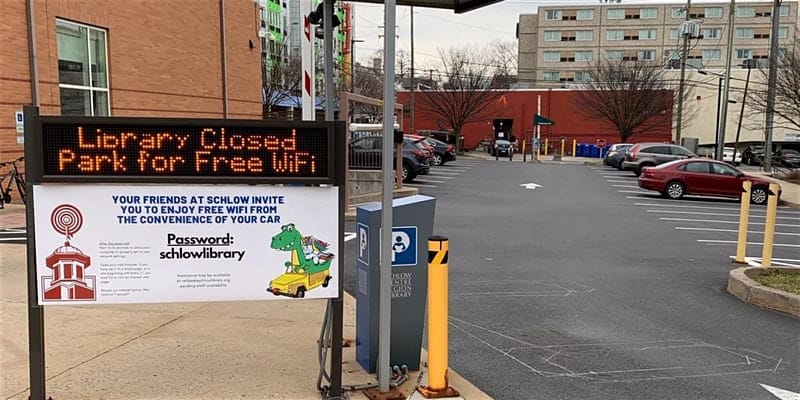Coronavirus Roundup: Fighting Against the Homework Gap, No Fixed Data Caps in U.K., Gigabit Libraries on Role in Pandemic
March 31, 2020 – Private-public partnerships are coming to the rescue in the fight against the digital divide and homework gap, writes Kim Hart and Margaret Harding McGill for Axios. Internet Service Providers, non-profits, and companies across the United States are donating devices, providing broad

March 31, 2020 – Private-public partnerships are coming to the rescue in the fight against the digital divide and homework gap, writes Kim Hart and Margaret Harding McGill for Axios.
Internet Service Providers, non-profits, and companies across the United States are donating devices, providing broadband, and giving out hotspots to families and students in need, reports Hart and McGill.
“While broadband providers are trying to help their communities in this unique situation, they’re still for-profit companies,” said Parks Associates Director of Research Steve Nason.
Nason said companies are doing what they can to help people, but the “ultimate goal” is to “convert them to paid subscribers or to upgrade their service.”
Telecom companies in Britain are removing data caps on fixed-line broadband
In response to the coronavirus and soaring need for connectivity, major telecom players in Britain are removing data caps on fixed-line broadband services, writes Paul Sandle for Reuters.
“Other measures include helping customers who find it difficult to pay bills as a result of the epidemic, improving mobile and landline packages to ensure people can stay connected, and prioritizing repairs for vulnerable customers,” writes Sandle.
Some of these telecom providers are BT, Virgin Media, Sky, and TalkTalk, reports Sandle.
Gigabit Libraries gathers information and knowledge about role of libraries in the coronavirus pandemic
Libraries are playing an important role in the reaction to the coronavirus pandemic, and the Gigabit Libraries Network is collection information and knowledge about their role.
Last Thursday, Friday and Saturday, Gigabit Libraries conducted a three-part online series addressed the closures of libraries across the country, and the role libraries are now playing during the coronavirus pandemic.
To watch the sessions, follow the links below, or view the page for all three events at http://giglibraries.net/page-1712339.
3/26 Internet Access – First consensus is to urge libraries (all types) to boost Wi-Fi signals to reach farther around buildings. Soonest. Some pushing signals to support new fixed library hotspots farther into their communities. Even as only part of a solution, we’ll get perspectives from leading libraries from the U.S. and beyond.
3/27 Digital Services – The expected surge in demand has librarians scrambling. How to simply maintain systems from home or by the very few permitted to go in to the building. What to prioritize? Expanding licenses to more e-materials? Probably. Attempt online story yime? Not so simple. Add new services? Interesting! How about a Zoom license to support patron needs to conduct online meetings at levels few ever imagined.
3/28 Physical Materials – Super tough nut to crack under lockdown. Millions of library patrons lack any online access and rely almost completely on libraries for reading material. Many libraries, while now closed, are still trying ways to deliver and received paper and other physical materials using curbside appointment pickup’s or even US mail. Quarantine for returned materials in some cases but most are saying just hold on to it for now.
Going forward, on Friday at 11 a.m. ET, the group will reconvene to look back at what’s happened that week as new experiences and reinvented service systems emerge toward answering this challenging question. Register at https://www.eventbrite.com/e/what-is-a-library-if-the-building-is-closed-on-fridays-tickets-101581270314
Guest speakers for the event on Friday, April 3, 2020, at 11 a.m. ET, include Joe Hillis of the Information Technology Disaster Resources Center and Cindy Aden, Washington State Librarian, updates on actions and responses in the state.
Broadband Breakfast is Media Sponsor of the event series.








